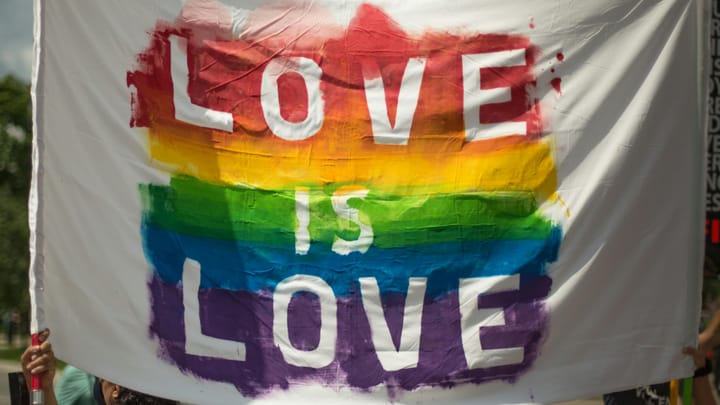Generational conflict and the war between generations

A few minutes every morning is all you need.
Stay up to date on the world's Headlines and Human Stories. It's fun, it's factual, it's fluff-free.
Throughout decades of controversy and a growing difference in values, a perpetual generational conflict seems to be making the war between generations worse by the year. Although this arbitrary system of categorizing groups based on age difference has helped build a sort of societal framework, it has also, in the end, increased social division. As if the distinctly different opinions and beliefs commonly associated with Generation Z, millennials, Generation X and baby boomers weren’t already at their peak, the financial insecurity and crash of the economy brought on by the coronavirus has produced even greater tensions between them.
Millennials have been living through a suppressed job market and the struggle of insurmountable student debt. Boomers are closer to retirement and have already secured stability (due to social security benefits), so they seem to be the only ones financially equipped to face this pandemic head-on. Although Gen Z seems to be the most adaptive and native to a digital world, they too have their own issues and have been collectively creating their own movements to address the concerns of their future. Because we see political tensions, sociocultural diversity and contrasts in their collective beliefs, one can see how the war may continue to rage between generations.
Baby boomers
The generational divide even before Gen Z sprouted into existence was always prevalent within the political and social realms of the world. If you were born between 1946 and 1964, you’re categorized as a boomer; the generation that currently owns the bulk of wealth in the United States and who are set with social security and retirement benefits to last their lifetime.
Research from Ethan Winter, a data analyst for Data for Progress, involved a survey during the pandemic of a little more than 2500 national voters. This survey found that 52% of voters under the age of 45 lost their job, were placed on leave or had hours cut while 26% of people over the age of 45 were faced with the same fate during the pandemic. Because the cost of living has risen substantially, Americans in their 50s and 60s have evidently fared better financially throughout this inflation.
We’re seeing the pandemic also affect where and how people shop, which has shown a growing rate of inflation. It seems as if recent recessions have disrupted the future lives and economic prospects of younger generations (such as millennials) who are trying to make ends meet.
Generation X and Xennials
Often shortened to Gen X is the generation born between the mid 1960’s and the early 1980’s, bridging the gap between the boomers and millennials. According to the 20th Annual Transamerica Retirement Survey of Workers, 80% of this “in between” generation believes that obtaining financial security will be harder for them than their parents (baby boomers). Because boomers hold more than half of the nation’s wealth, over the next few decades Americans are going to see a major transfer of wealth to younger generations like Gen X.
Another challenge is that this “in-between" generation has reached the point where they are supporting and educating their children while also providing the necessary care for their retired/aging parents. Because of this double responsibility as well as the rising costs of things like education, housing, healthcare, etc., Gen Xers have been dealt a hand of financial duress, leaving them with intensified effects of the pandemic.
Millennials
If you’re between the ages of 25 and 40, you’re a millennial, and odds are you’ve likely experienced a disrupted future with strained finances. Millennials have lived through one of the slowest economic growths in history. You’ve probably graduated with your bachelor’s degree, are sitting on student debt and have yet to find a sustainable career – something that your parents may expect you to find as easily as they did.
Through the years that millennials were born, the world had already begun going through the early 1990’s recession, leaving behind severely depressed job markets and a rising unemployment rate. Because the economy continues to endure such drastic turmoil and is currently going through one of the worst economic downturns in decades, millennials have been faced with major setbacks and employment challenges that their parents and grandparents may not fully understand or empathize with.
Despite the many intergenerational conflicts occurring around the world, one glaring issue that stands out is attaining financial security. Many millennials went through all the steps of getting a secondary education (something more heavily pushed to this generation than those before them), yet are still missing the careers they expected to fill that void of uncertainty and future financial stability.
Generation Z
Because generations like millennials and Gen Z are beginning to make up the majority of the US population, we’re beginning to see the youngest of the generations tackling political interests and taking more interest in changing the future. As a result of Gen Z realizing that they’ve endured a life of natural disasters, nationwide civil unrest and record-breaking temperatures, a new generation of activists and youth-led movements are starting to emerge.
According to Alyssa Biederman on an AP news exclusive, a 17-year-old climate justice activist by the name of Lily Mandel has organized a group called Bucks Students for Climate Action and Protection of the Environment, which fights for climate awareness and raises money to build greenhouses. Aside from Mandel starting her own organization, Gen Z activists have also found a way to fully utilize the power of social media to bring awareness and engage on issues involving climate change, sustainability and conservation.
Who are Generation Alpha?
The youngest of all generations (the children of millennials) have finally been recognized and labeled as the newest addition to these generational labels. Because these labels have finally reached an end to the alphabetic order, they’ve adopted the Greek alphabet, hence “Alpha,” the generation born from 2010 to 2024. Millennials are now raising a new generation of children, and there are a few predictions about what’s to come in future years for the Alphas.
Expected to reach a population of 35 million, members of this generation have been directly born into a life of Ipads, Instagram and everything centered around digital tools and platforms. Pioneers of this technological era, Generation Alpha is forecasted to be the most technologically-savvy generation because of the role that tech has in their everyday lives (especially now since the pandemic hit). They are also predicted to be a more diverse and progressive-thinking generation with a complex understanding of racial and gender equality.
As we examine some of the disparities surrounding each generation, the problems that surface are still being acknowledged – and they are complicated, to say the least. But, the issues run deeper than an argument over side-parts and skinny jeans. Although we can’t single-handedly blame one generation for the issues prevalent in the world today, these delineations may be why generational conflict feels at an all-time high. Before we start making assumptions, we should keep an open mind and try to understand all the moving parts that led to where we are today.
Have a tip or story? Get in touch with our reporters at tips@themilsource.com




Comments ()